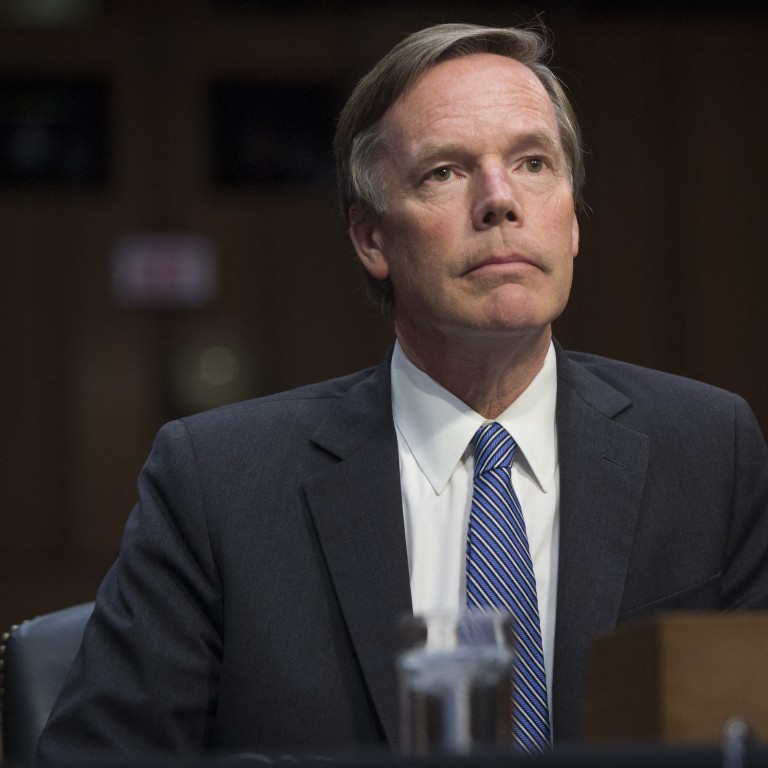
China-US ties: ‘not much room to move’ for next American ambassador
- The White House plans to nominate career diplomat Nicholas Burns as its next man in Beijing
- It’s a positive sign but he will be limited in what he can do, observers say
Now a professor at the Harvard Kennedy School, Burns worked at the State Department for more than three decades, serving as the US ambassador to Nato from 2001 to 2005 under president George W. Bush and as a member of a foreign policy advisory board for three years during president Barack Obama’s administration.
Shi Yinhong, an adviser to the State Council and a professor of international relations at Renmin University, said Burns was a widely respected career diplomat but both he and Chinese ambassador Qin Gang would be “overwhelmingly” restricted by the worsening ties between the two countries.
“The international environment has changed so much and I don’t see there is much room for the two ambassadors to work to ease the tensions between the two countries,” Shi said.
Tensions are rising between China and the US on various fronts, from trade to human rights.
Beijing is also watching closely to see whether Taiwanese President Tsai Ing-wen will be invited to attend the US-led virtual summit for democracy in December.
The White House said the summit themes would include defending against authoritarianism, fighting corruption and promoting respect for human rights.
China’s US envoy Qin Gang strikes conciliatory note on arrival in Washington
Some analysts said it was a good sign to see Biden nominate a veteran diplomat rather than a political appointee to the position.
Zhao Kejin, an expert on China’s foreign policy and diplomacy at the Carnegie-Tsinghua Centre for Global Policy, said the US could be trying to improve communication between the two countries.
“The United States used to send politicians to serve as ambassadors to China, hoping to solve the problem from the political point of view, but that isn’t working,” Zhao said.
“At present, the diplomatic communication between the US and China is a bit problematic, as if the US doesn’t really listen to or it doesn’t seem to understand what China says.”
He said the selection of Burns showed that the US still wanted to engage with China to a certain degree, despite their expected long-term strategic competition.
“The US withdrawal from Afghanistan shows that its global strategy is shifting from a counterterrorism-centered approach to a major power competition-centered approach, so what awaits Burns is a big challenge,” he said.
China’s new envoy Qin Gang goes to Washington after Sherman talks
Shi said the White House was unlikely to moderate its position on China given the way it had appeared “quite embarrassed” by events in Afghanistan.
The climate of US domestic politics and the attitude of US allies would also make it difficult to ease relations, he said.
“But ambassadors are traditionally messengers, and it remains to be seen how big a role Burns can play, and it depends whether he is close to the president or not.”
While a foreign ministry spokesman, Qin was well known in China for his confrontational Wolf Warrior rhetoric.

